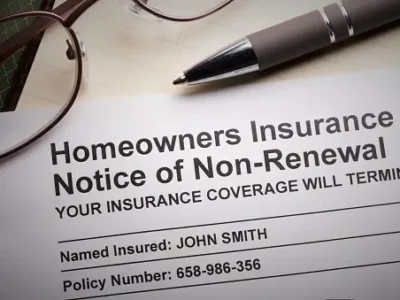Homeowners Insurance Overview
Homeowners insurance is a must-have for anyone who owns a home. It provides coverage for your home, personal property, and liability in case of an accident or disaster. Homeowners policies typically include dwelling coverage, which pays to rebuild or repair your home if it’s damaged or destroyed, as well as replacement cost coverage, which pays to replace your home with one of similar quality and size. Most policies also include personal property coverage, which pays to replace your belongings if they’re damaged or destroyed, and liability coverage, which pays for damage caused by you or your family members.
Your insurance company may also offer additional coverage, such as personal liability coverage, which pays for damage caused by you or your family members, and additional living expenses, which pays for your living expenses if you have to temporarily move out of your home due to a covered peril. You may also need to purchase separate policies for certain types of homeowners insurance, such as flood insurance or earthquake coverage. When shopping for homeowners insurance, it’s important to talk to your insurance agent to make sure you have the coverage you need. They can help you determine the amount of insurance you need, the types of coverage you need, and the deductible you should choose.
Types of Homeowners Insurance
Homeowners insurance is an important part of owning a home. It provides financial protection against losses due to theft, fire, hail, and other disasters. Homeowners insurance policies cover the cost of rebuilding your home, as well as the cost of replacing your personal belongings. Most standard homeowners insurance policies also cover loss of use coverage, which pays for additional living expenses if your home is damaged and you need to stay elsewhere while it is being repaired.
Companies offer a variety of homeowners insurance policies, including replacement cost policies, actual cash value policies, and extended replacement cost policies. Replacement cost policies cover the cost to repair or replace your home and belongings without taking into account depreciation. Actual cash value policies cover the cost to repair or replace your home and belongings, but with a deduction for depreciation. Extended replacement cost policies pay more than the cost to repair or replace your home, up to a certain policy limit. Homeowners insurance policies also provide liability and medical payments coverage, which pays for medical bills and legal costs if someone is injured on your property. Companies may offer additional endorsements to cover things like water damage, earthquake damage, and flood coverage. It’s important to review your policy and make sure you have enough coverage to cover the cost of rebuilding your home.
Homeowners Insurance Coverage
Homeowners insurance is an important part of owning a home. It provides coverage for your home and belongings in case of damage or theft. Companies offer different types of homeowners coverage, so it pays to shop around and compare policis. Your mortgage company may require you to have a certain amount of coverage, so make sure you understand the homeowners insurance basics before you buy.
When you file a claim, your insurance company will pay for repairs or replacement of your home and belongings up to tou have. Some policies might cover the actual cash value of your belongings, which is the cost to replace them minus any wear and tear. Other policies might cover the cost to rebuild your home, which is usually more than the actual cash value. Your policy might also cover additional living expenses if you need to move out while repairs are being made. Homeowners insurance generally covers damage from fire, wind, hail, lightning, and theft, but it won’t cover damage from floods or earthquakes. It also provides liability coverage in case someone is injured on your property. Be sure to read your policy carefully to understand what is and isn’t covered. Choosing a higher deductible can help lower your insurance premium, but make sure you have enough coverage to cover the cost to rebuild your home. Homeowners insurance is important, so make sure you renew your policy each year and keep your insurance information up to date.
How Homeowners Insurance Works
Homeowners insurance is a must-have for anyone who owns a home. It provides insurance to cover the cost of repairing or replacing your home and its contents if they are damaged or destroyed by a covered event. Homeowners insurance also provides actual cash value coverage, which pays enough to cover the cost of replacing the damaged or destroyed items with items of similar age and condition.
When it comes to homeowners insurance, it pays to repair or replace your home and its contents if they are damaged or destroyed by a covered event. Homeowners and renters insurance policies do not cover damage caused by floods, earthquakes, or routine wear and tear. However, local insurance companies offer additional coverage for these events. Homeowners need to pay for insurance to cover the cost of homeowners insurance claims. The homeowners policy doesn’t cover everything, so it’s important to read the policy carefully to see what is listed in the policy. Most policies do not cover damage caused by floods, earthquakes, or routine wear and tear, but the insurance company’s may pay the cost of additional coverage for these events. Homeowners insurance also provides coverage for fire, theft, and other disasters.
Homeowners Insurance Rates
Homeowners insurance rates can be a real pain in the neck. It’s one of those necessary evils that we all have to deal with. But, with a little bit of research and some savvy shopping, you can find a great home insurance policy that won’t break the bank.
When it comes to finding the best home insurance rates, it pays to shop around. Compare quotes from different companies and make sure you’re getting the coverage you need. Don’t be afraid to haggle a bit and ask for discounts. You might be surprised at how much you can save on your home insurance. And, don’t forget to check out online resources for additional savings. With a little bit of effort, you can find the perfect home insurance policy that fits your budget.
Conclusion
Home insurance is an important part of protecting your home and possessions from risks. Home insurance premiums are the cost of the coverage you purchase to urance coverage can include protection from fire, theft, and other risks. It can also provide coverage for personal liability and medical payments.
In conclusion, home insurance is an important part of protecting your home and possessions from risks. Home insurance premiums are the cost of the coverage you purchase to protect your home and possessions.
Premiums are based on the amount of coverage you need and the risks associated with your home. Home insurance coverage can provide protection from fire, theft, and other risks, as well as personal liability and medical payments. It is important to understand the risks associated with your home and the coverage you need to protect yourself and your possessions. By understanding the risks and the coverage you need, you can make an informed decision about the right home insurance policy for you.
FAQ’s:
Q1. What is homeowner’s insurance?
A1. Homeowner’s insurance is a type of insurance policy that provides financial protection against losses and damages toidual’s home and belongings. It also provides liability coverage against accidents in the home or on the property.
Q2. What does homeowner’s insurance cover?
A2. Homeowner’s insurance typically covers losses and damages to the home and its contents, as well as liability coverage for accidents that occur in the home or on the property.
Q3. How much does homeowner’s insurance cost?
A3. The cost of homeowner’s insurance varies depending on the type and amount of coverage, the location of the home, and other factors.
Q4. Is homeowner’s insurance required?
A4. Homeowner’s insurance is not required by law, but it is typically required by mortgage lenders in order to protect their investment.
Q5. What is the difference between homeowner’s insurance and renters insurance?
A5. Homeowner’s insurance is for homeowners who own their home, while renters insurance is for renters who do not own their home. Homeowner’s insurance typically covers losses and damages to the home and its contents, while renters insurance typically covers losses and damages to the renter’s personal belongings.
Q6. What is the difference between homeowner’s insurance and home warranty?
A6. Homeowner’s insurance is an insurance policy that provides financial protection against losses and damages to an individual’s home and belongings, while a home warranty is a service contract that covers the repair or replacement of certain home systems and appliances.
Q7. What is the difference between homeowner’s insurance and flood insurance?
A7. Homeowner’s insurance typically covers losses and damages to the home and its contents, while flood insurance provides financial protection against losses and damages caused by flooding.

Khubon Ishakova
Khubon has been guiding clients through the complexities of various insurance policies. With his vast knowledge and hands-on experience, Khubon is dedicated to helping individuals and businesses make informed insurance decisions. Through this site, she shares valuable insights and expertise to demystify the world of insurance for readers.



 Pet Insurance Guides and Resources
Pet Insurance Guides and Resources
